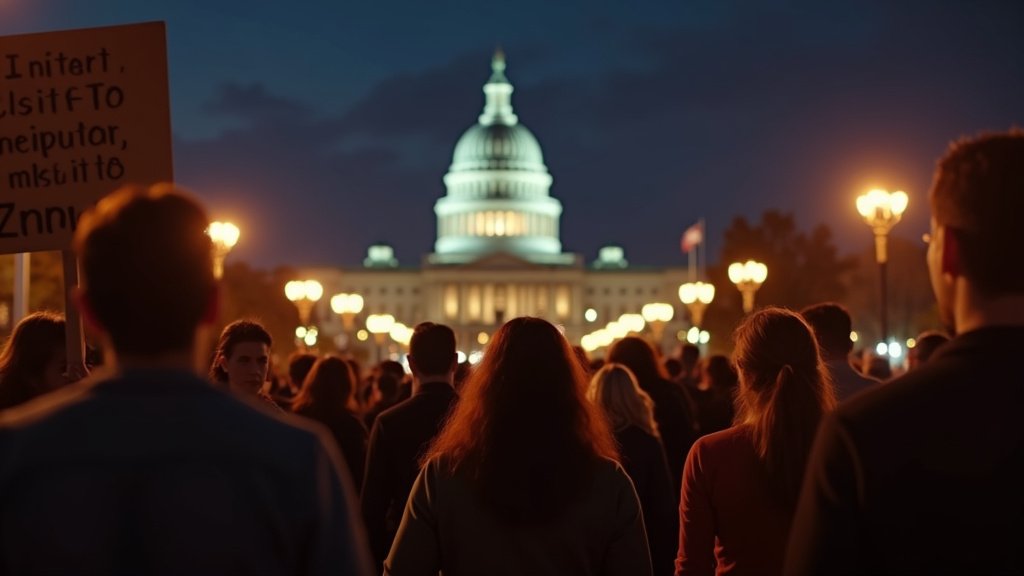Washington, D.C. – The Trump administration has initiated significant legal action against the City of Los Angeles, launching a lawsuit in federal court targeting the city’s controversial “sanctuary city” policies. The suit names the City of Los Angeles itself, along with Mayor Karen Bass and the City Council, as defendants.
The core of the administration’s complaint rests on the assertion that Los Angeles’s ordinances regarding immigration enforcement violate the United States Constitution. The lawsuit specifically alleges that these policies are actively involved in “thwarting” federal immigration enforcement efforts, creating a direct conflict with national law.
Allegations of Obstruction
The legal filing contends that the sanctuary laws implemented by Los Angeles are not merely passive measures but are, in fact, illegal and specifically designed to impede federal authority. The lawsuit uses strong language, stating that the policies aim to “obstruct the federal government’s enforcement of federal immigration law and impede consultation and communication between federal, state and local law enforcement officials.”
This legal challenge represents a direct confrontation between the federal government’s stance on immigration enforcement and the approach taken by some major U.S. cities. Sanctuary city policies typically involve local law enforcement agencies limiting their cooperation with federal immigration authorities, such as Immigration and Customs Enforcement (ICE), often by declining requests to detain individuals based solely on immigration status or refraining from inquiring about immigration status during routine interactions.
Political Context and Enforcement Platform
The lawsuit arrives amidst a political climate heavily influenced by immigration debates. The filing notably references the electoral success of President Donald J. Trump, stating that he campaigned and won the presidential election in 2024 on a platform that included the deportation of millions of illegal immigrants [7]. This reference underscores the administration’s strong mandate and stated commitment to rigorous immigration enforcement as a central policy tenet.
The administration argues that local policies that hinder the ability of federal agents to locate, apprehend, and deport individuals who are in the country illegally, particularly those with criminal records, undermine national security and the rule of law. The lawsuit likely seeks injunctive relief to prevent the city from enforcing the challenged ordinances and potentially a declaration that the policies are unconstitutional.
Legal Basis and Constitutional Conflict
The federal government’s case likely hinges on the Supremacy Clause of the U.S. Constitution, which establishes that federal laws are the supreme law of the land and generally preempt conflicting state and local laws. The administration will argue that federal immigration law is comprehensive and that local sanctuary policies create an impermissible obstacle to its execution.
Conversely, the City of Los Angeles and its defenders are expected to argue that their policies are within the bounds of local authority, designed to promote trust between immigrant communities and local law enforcement (encouraging reporting of crimes without fear of deportation), and that they are not actively interfering with federal operations but merely declining to use local resources for federal purposes. They may also argue that the federal government cannot compel local jurisdictions to enforce federal law.
Implications for Federal-Local Relations
This lawsuit escalates the long-standing tension between the federal government and cities adopting sanctuary policies. The outcome of this case could have significant implications not only for Los Angeles but for numerous other cities and counties across the United States that have enacted similar measures. A ruling in favor of the administration could compel fundamental changes in how local governments interact with federal immigration authorities, potentially forcing them to participate more actively in enforcement efforts.
Conversely, if the court sides with Los Angeles, it could reinforce the ability of local jurisdictions to set their own priorities regarding the use of local resources and the nature of their cooperation with federal agencies, particularly in areas of concurrent jurisdiction like law enforcement. The legal battle is poised to delve into complex questions about the division of powers between federal, state, and local governments concerning immigration – an area primarily under federal purview, but with significant local impact.
Legal experts anticipate that the case will likely be protracted, involving extensive legal arguments and potentially appeals that could see it reach higher courts. The focus will be squarely on whether the specific provisions of Los Angeles’s ordinances are found to directly conflict with or unduly impede federal immigration statutes, thereby violating the Constitution.





